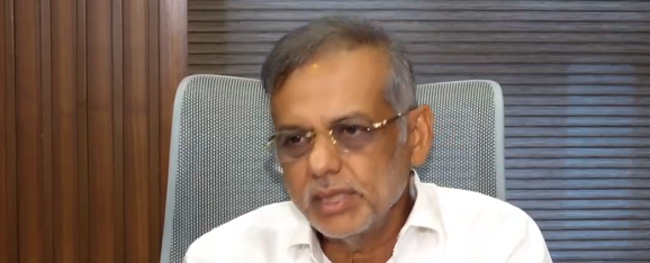Bhubaneswar: Financial experts are indeed suggesting that Pakistan’s economy could face a serious financial crisis due to the import ban imposed by India.
Leading Financial Expert, Rajib Sekhar Sahoo detailed out as to how Pakistan economy will face real crisis and it will collapse.
His assessment is based on several factors:
Dependence on Indian Imports:
- Pakistan’s pharmaceutical, chemical, and food sectors rely on inputs from India. The ban is expected to disrupt these sectors significantly.
- In the fiscal year 2024-25 (April-January), Pakistan imported approximately $120.86 million worth of pharmaceutical products from India. Organic chemicals were the largest import category at $164.19 million.
- Other significant imports included plastics, inorganic chemicals, mineral fuels, and edible preparations.
- The halt in trade will likely lead to shortages of essential medicines, chemicals, fruits, vegetables, and other crucial items, affecting the daily lives of ordinary Pakistanis.
Formal and Informal Trade Disruption:
- While official trade volumes were already low (India’s exports to Pakistan were $447.65 million and imports were $0.42 million in April-January 2024-25), a significant amount of informal trade, estimated to be around $10 billion annually, occurs through third countries.
- The formal ban and increased scrutiny are expected to put a strain on these informal routes as well, increasing costs and potentially disrupting the supply of goods.
- The closure of the Wagah-Attari trade route, the only land port for trade between the two countries, will further increase transportation costs for any remaining trade.
Economic Vulnerability of Pakistan:
- Pakistan’s economy is already considered fragile, and the import ban is expected to exacerbate existing issues.
- There are concerns that inflation, particularly for food items, could rise again. Prices of basic food items like rice and chicken have already reportedly increased sharply.
- International financial institutions like the IMF and World Bank have already downgraded Pakistan’s economic growth forecasts for the current fiscal year.
- A recent World Bank report indicated that over 10 million people in Pakistan could face extreme food insecurity this year, and the trade halt could worsen this situation.
- The ban could also impact Pakistan’s export sector, which relies on cross-border trade for goods like cement, textiles, and agricultural produce.
Overall Impact:
- The combination of disrupted supply chains, potential price hikes, and strain on informal trade is expected to put significant pressure on Pakistan’s already struggling economy.
- Financial experts believe that this could lead to a deeper economic crisis for the country.


